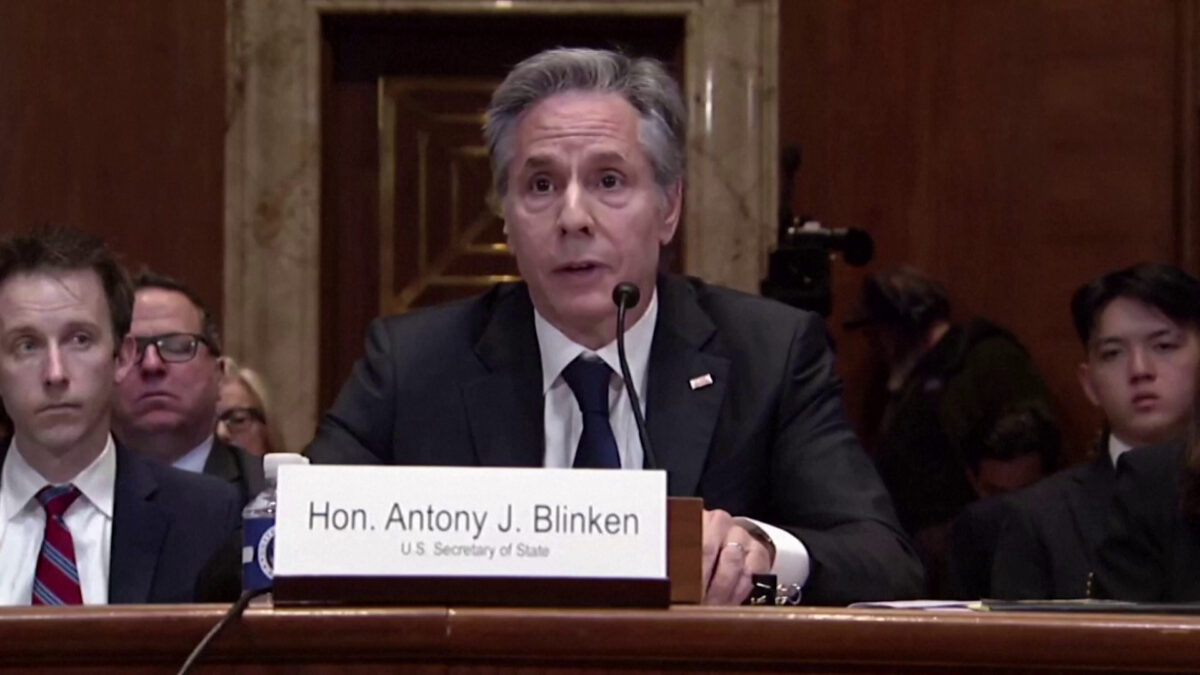Secretary of State Antony Blinken failed to provide the House Foreign Affairs Committee with eight crucial documents related to the withdrawal of American forces from Afghanistan two years ago, according to a news report released on Saturday.
The State Department shared 300 documents pertaining to the Afghanistan withdrawal with the committee on Thursday. However, a news report reveals that eight documents, specifically requested by committee chairman Michael McCaul in a letter dated August 9, were conspicuously absent. Among these were several memos from Assistant Secretary for Diplomatic Security Todd Brown, which McCaul indicated were referenced in the Afghanistan After-Action Review.
“The AAR files are essential to guide the Committee’s deliberations on prospective legislation aimed at preventing the recurrence of the catastrophic errors of the previous withdrawal,” McCaul stated on August 10.
According to an anonymous committee source who spoke to Just The News, the 300 documents largely contained information that was already publicly accessible. The stipulated deadline for providing all requested documents to the committee was Tuesday.
Detractors of the withdrawal have characterized it as “disastrous” in light of over 170 fatalities during the Taliban’s seizure of power, including 13 military servicemembers. McCaul has asserted his determination to acquire additional insights from the Biden administration concerning the evacuation. This includes details on the decision to reject a preemptive airstrike request, despite U.S. intelligence being aware of ISIS plotting an attack to kill Americans.
“I will not cease my efforts until we attain answers and hold individuals accountable for the series of events,” McCaul affirmed. “How did this situation devolve so drastically?”
The after-action report published earlier this summer highlighted that both the Biden and Trump administrations displayed “insufficient high-level consideration of worst-case scenarios and their potential rapid occurrence” while striving to meet the withdrawal deadline.
The report also revealed that the U.S. overestimated the viability of the now-defunct democratically elected Afghan government’s ability to withstand Taliban offensives. It further exposed a significant lack of communication between the Pentagon and the State Department, exacerbated by poor coordination among leaders within these distinct entities.
The White House allowed the two-year anniversary of the evacuation to pass unmarked on Tuesday. Despite this, Blinken maintained that the administration’s decision to withdraw its forces from the Middle Eastern nation was the correct one.
Blinken addressed reporters, saying, “The determination to exit Afghanistan was exceptionally challenging, yet undeniably correct. We concluded America’s lengthiest conflict. For the first time in two decades, we’ve spared a new generation of American youth from deploying to, and perishing in, Afghanistan.”
White House officials neither confirmed nor denied whether the president would address the withdrawal later in the month. Nonetheless, they noted that the full evacuation’s anniversary would occur at the end of this month.





